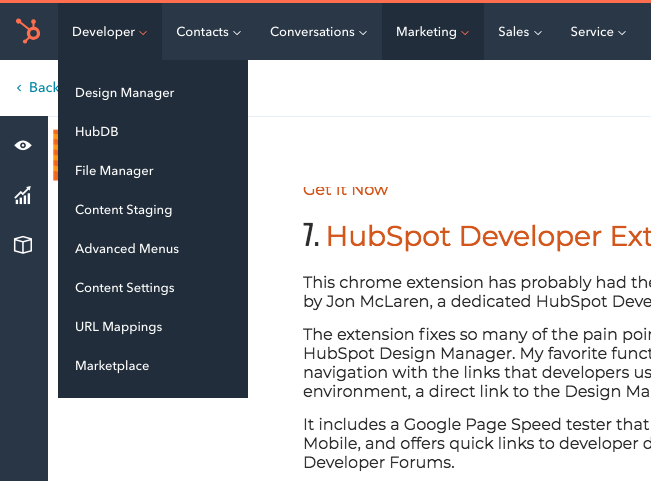 A few weeks ago we discussed some great tips on content guidelines and how to come up with content ideas for your business blog in order to help prevent the dangerous waters of writer's block.
A few weeks ago we discussed some great tips on content guidelines and how to come up with content ideas for your business blog in order to help prevent the dangerous waters of writer's block.
This week we are going to shift gears slightly by changing the focus from blog writing to blog management.
But before we jump into this week's tips, let's quickly reiterate the power of creating and consistently using a business blog as tool for inbound marketing:
- 81% of U.S. online consumers trust information and advice from blogs – source BlogHer
- Companies that blog have 97% more inbound links – source Hubspot
- B2B marketers who use blogs generate 67% more leads than those that do not – source InsideView
- 61% of U.S. online consumers have made a purchase based on recommendations from a blog – source BlogHer
- Businesses that blog ≥ 20 times/month get 5x more traffic than those who blog ≤ 4 times/month
[tweetthis]Businesses that #blog ≥ 20 times/month get 5x more #traffic than those who blog ≤ 4 times/month (source HubSpot)[/tweetthis]– source Hubspot
Tips for Blog Management
The stats above are extremely compelling and leave little wiggle room for argument against the utility of blogging. But knowing how important it is and generating great content ideas are just two sides of it.
Learning how to manage your blog system and team of writers can make a big difference in the effectiveness of your overall blog strategy. Below are 10 tips that I have learned through my own experiences with blog management.
Get Ahead
This is a simple but big one folks. Creating a plan and getting a week or two ahead of the production schedule can help in a lot of ways:
- Reduces daily blog management concerns
- Builds up a natural "rainy-day" fund
- Lessens overall pressures for the team
- Frees up more time to focus on the items below
Plan for Keywords
 This builds off of our original post on coming up with blog content. A smart blog management strategy should be driven by keywords that pertain to your business expertise and goals.
This builds off of our original post on coming up with blog content. A smart blog management strategy should be driven by keywords that pertain to your business expertise and goals.
Assign your writers keywords that play to their individual strengths and also represent the greatest ranking opportunity for your business.
Content, Not SEO, is Still King
I am borrowing this point straight from the HubSpot inbound methodology. As powerful and important as SEO is, creating great content is still the #1 way to drive the right traffic to your content.
Just like in Field of Dreams - build it and they will come. But you'd better make sure you don't just build it - that "stadium" should have heated seat cushions, a full service refreshment crew, a jumbotron to and anything else that would add value to the user experience/education.
Use Automation
And not just for publishing, but for writer scheduling, reminders, etc. as well. As with almost any other marketing function, new technologies and tools can help ease the impact of those daily, time-consuming tasks that can cut into your productivity.
Check out what your current tools have to offer in terms of automation - their just might be some great functionalities that you weren't aware of!
Don't Forget Old Content
Always keep your eyes toward the future (see next bullet) but don't neglect content from the past. Monitor what is performing well, what can be tweaked to improve performance, ways in which old content can be repurposed and reborn, etc.
This will also help you avoid wasting time duplicating content ideas that have already been implemented.
Look for New Opportunities
Keeping your blog fresh is a win win for everyone - including yourself, writers, and most importantly your readers.
Don't let your blog go stale or become complacent on a static hampster wheel! Explore guest blogging opportunities, ways to drive more reader engagement, video incorporation, etc.
Allow Writers to Innovate
Although it is important to follow a targeted keyword plan for SEO purposes, writing is ultimately a practice best fueled by personal passion and creativity.
Empower your writing staff to bring new ideas to the table and delve into areas that have crossover between your business and their personal interests. This will add a dimension of personality to your blog, keep writers engaged and give regular readers a perpetual hook knowing that your blog will not just be the same old stuff over and over.
Encourage Sharing on Personal Networks
For those team members who are willing and equally importantly for those who are actual social media users. You don't want to create a spam vibe and certainly would not want to force a writer to adjust their own personal habits for that tradeoff.
Sharing on personal networks outside of your typical company channels creates compound interest of blog reach throughout social networks, particularly Twitter. This is a great way for your team to build their own network of professionals and of course drive more clicks and interactions with your blog.
Learn from Others
 Being a content consumer should be part of your organic daily habits as a marketing professional. Now evolve that daily habit to include annotating what facets and techniques of other blogs that you are drawn to.
Being a content consumer should be part of your organic daily habits as a marketing professional. Now evolve that daily habit to include annotating what facets and techniques of other blogs that you are drawn to.
What headlines did you click on? Why? Did you relate on a personal level to the content? Was it provocative; controversial? How did blog design impact your reader experience? Constantly asking and answering these types of questions will help yield a dynamic blog built on best practices.
Be Analytical
Don't ever stop diving into the numbers! I touched on this a bit in "Don't Forget Old Content", but there is tremendous power that comes from the numbers.
A great blog strategy should be constantly evolving based off of intelligent data on the back end. The findings that you get from the analytical process should influence and inform the learning stage, the innovation stage, the new opportunity stage, the sharing stage, etc.
What Are Your Tips?
As with most posts of this nature - I have given you a great list to start from, but one that is certainly not comprehensive. What tips have you learned from your blog management experience?
Did you disagree with or did I miss any? Let us know in the comments below!


-1.png)
